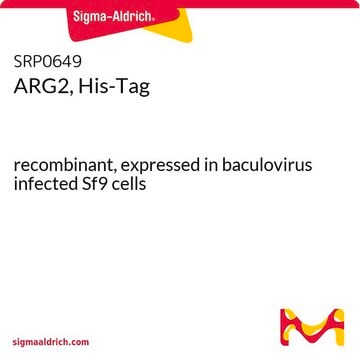40234
N,N-Dimethyldodecylamine N-oxide
BioXtra, ≥99.0% (NT)
Synonym(s):
DDAO, LDAO, Lauryldimethylamine N-oxide
About This Item
Recommended Products
description
non-ionic
Quality Level
product line
BioXtra
Assay
≥99.0% (NT)
form
powder
mol wt
229.40 g/mol
technique(s)
protein quantification: suitable
impurities
≤0.03% peroxides (as H2O2)
CMC
1-2 mM
mp
132-133 °C (lit.)
anion traces
chloride (Cl-): ≤100 mg/kg
sulfate (SO42-): ≤50 mg/kg
cation traces
Ca: ≤10 mg/kg
Cd: ≤5 mg/kg
Co: ≤5 mg/kg
Cr: ≤5 mg/kg
Cu: ≤5 mg/kg
Fe: ≤5 mg/kg
K: ≤100 mg/kg
Mg: ≤5 mg/kg
Mn: ≤5 mg/kg
Na: ≤50 mg/kg
Ni: ≤5 mg/kg
Pb: ≤5 mg/kg
Zn: ≤5 mg/kg
storage temp.
2-8°C
SMILES string
CCCCCCCCCCCC[N+](C)(C)[O-]
InChI
1S/C14H31NO/c1-4-5-6-7-8-9-10-11-12-13-14-15(2,3)16/h4-14H2,1-3H3
InChI key
SYELZBGXAIXKHU-UHFFFAOYSA-N
Looking for similar products? Visit Product Comparison Guide
General description
Application
Signal Word
Danger
Hazard Statements
Precautionary Statements
Hazard Classifications
Acute Tox. 4 Oral - Aquatic Acute 1 - Aquatic Chronic 2 - Eye Dam. 1 - Skin Irrit. 2
Storage Class Code
11 - Combustible Solids
WGK
WGK 2
Personal Protective Equipment
Choose from one of the most recent versions:
Certificates of Analysis (COA)
Don't see the Right Version?
If you require a particular version, you can look up a specific certificate by the Lot or Batch number.
Already Own This Product?
Find documentation for the products that you have recently purchased in the Document Library.
Customers Also Viewed
Our team of scientists has experience in all areas of research including Life Science, Material Science, Chemical Synthesis, Chromatography, Analytical and many others.
Contact Technical Service













